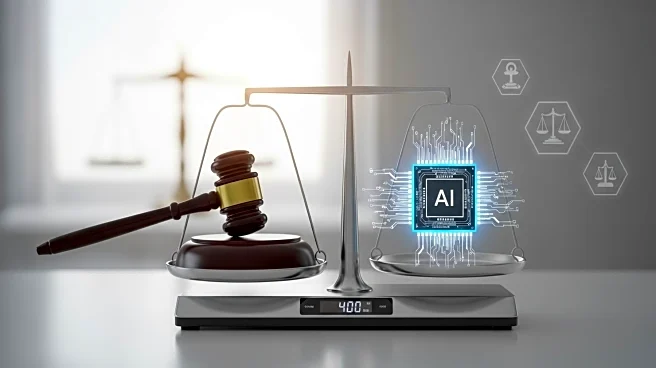What is the story about?
What's Happening?
Legal experts are cautioning against the use of Artificial Intelligence (AI) as a substitute for professional legal advice. While AI tools like ChatGPT are increasingly used for drafting legal documents, they are prone to errors such as fabricating cases and statutes, known as 'hallucinations.' A study by Cornell University found that nearly 60% of AI-generated legal responses contained inaccuracies. These tools struggle with complex legal calculations and lack the ability to interpret real-time court rulings or local legal customs, posing risks in areas like personal injury law.
Why It's Important?
The reliance on AI for legal advice could have serious consequences for individuals seeking justice. AI's inability to accurately interpret legal nuances and calculate damages could lead to significant financial losses and undermine legal proceedings. This highlights the importance of human expertise in legal matters, where trained judgment and strategic thinking are crucial. The use of AI in legal contexts must be carefully managed to ensure it complements rather than replaces professional legal services, safeguarding the integrity of legal processes.
What's Next?
As AI continues to evolve, legal firms may increasingly integrate AI tools to enhance efficiency while maintaining oversight by licensed attorneys. This hybrid approach could improve case management and negotiation tactics, provided that AI is used responsibly. Legal professionals and policymakers may need to establish guidelines for AI use in legal contexts to prevent misuse and ensure ethical standards are upheld. Public awareness campaigns could also be launched to educate individuals on the limitations of AI in legal matters.















